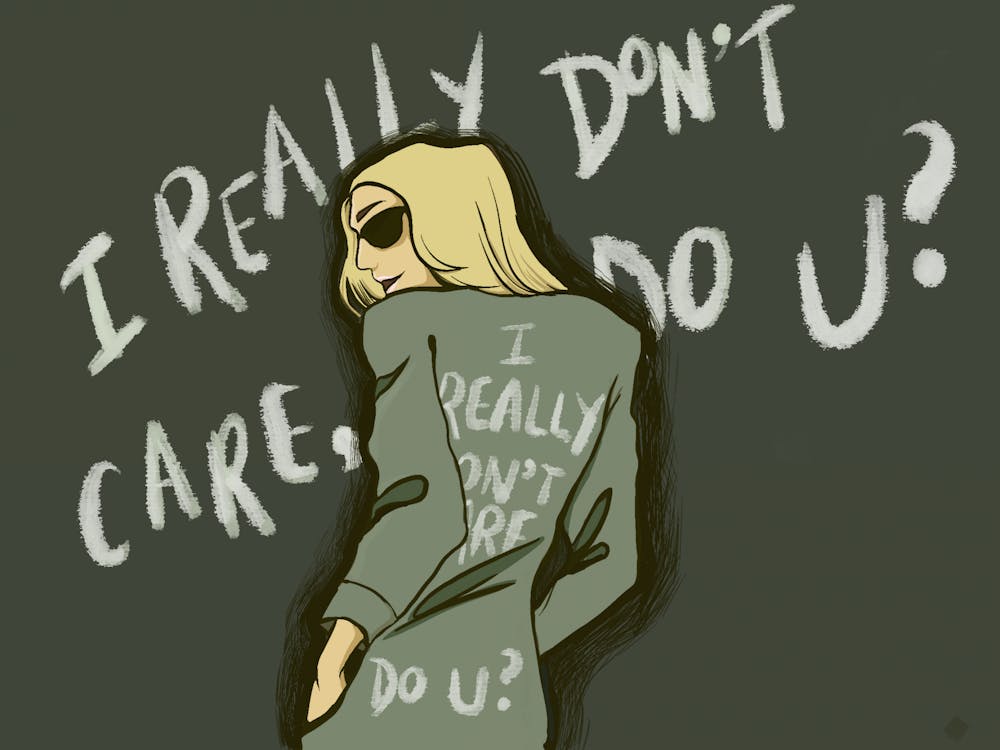Donald and Melania Trump’s marriage has captivated the interest of the internet for all the wrong reasons. Standing in stark contrast with the heartfelt romance between Barack and Michelle Obama, analyses of the Trumps often paint their relationship as strained and unnatural, noting Melania’s uncomfortable body language and her clear reluctance to engage in PDA. With the media and internet culture framing Mrs. Trump as a reluctant participant in her marriage, a perception of the First Lady as being “too good” for her racist, misogynist husband has formed. From her refusal to hold his hand to her questionable facial expressions, Melania Trump has been painted as a female casualty of Trump’s delusional egotism.
Due to the commonly held perception of our First Lady’s victimhood, memes and hashtags such as #FreeMelania have circulated throughout the Internet. Shockingly, they paint her marital resentment as a form of quiet resistance against the president. However, pitying the First Lady ignores her own agency and personhood.
Why do we keep on giving Melania Trump the benefit of the doubt? From wearing her infamous “I really don't care, do u?” jacket to visit children separated from their parents in a Texas detention center to her noted support of birther claims about Obama, she clearly and consciously embraces her role in the administration. After defending Trump against allegations of sexual assault by referring to it as “boy talk,” it seems clear that she chose to be an accessory to and a condoner of bigotry.
Yet, instead of drawing attention to the true role she plays as First Lady and holding her accountable for her actions, we make memes about her. We tell her to “blink twice if [she] needs help” and make Tik Toks about how her choice to vote alone implies a secret vote for Joe Biden. We see her as Donald Trump’s “classy” and “enigmatic” foil and praise her when she gives her husband a dirty look. We make her out to be a reluctant first lady who didn’t sign up for the task at hand. Even though these conceptions may be characterized as jokes and memes, it raises this question: Why is the way we portray Melania Trump centered around her innocence, reluctance, and cluelessness?
This characterization of Melania Trump is nothing new or surprising. As demonstrated by past media portrayals of Ivanka Trump and Kellyanne Conway, much of the perception of conservative white women in politics revolves around innocence and victimhood in the name of female representation. Yet this type of portrayal in itself goes against the very framework of what feminism stands for.
Feminism isn’t praising women in positions of power for simply existing in their womanhood. By spreading the view that female enablers like Melania Trump are ideological victims of the bigoted men around them, it completely undermines the need for female accountability and further pushes the idea that complicity is acceptable—and even “memeable.”
Despite her obvious disgust with her repulsive husband, Melania Trump is not a beacon of resistant light in the Trump administration. She is a vulture who gains from her husband’s bigoted existence, masterfully hiding behind her carefully crafted, enigmatic reputation that we further perpetuate through our “harmless” Tik Toks and tweets. Not only does she benefit from her husband’s power and wealth, she also benefits from our sympathetic conception of her white womanhood. She deserves no sympathy for enabling her husband to threaten the lives and the rights of many.
Quite simply put, Melania Trump’s womanhood doesn’t make her a feminist icon. Contrary to her portrayal in the media, she does indeed have agency; she isn’t controlled by her husband or any of the other men that surround her. She isn’t trapped in an unhappy marriage that holds her captive to one of America’s most prominent bigots, and she doesn’t need to be “saved” from the evils of the Trump family. And in the name of true feminism, she must be held accountable for her actions and crimes against those affected by the Trump administration.







